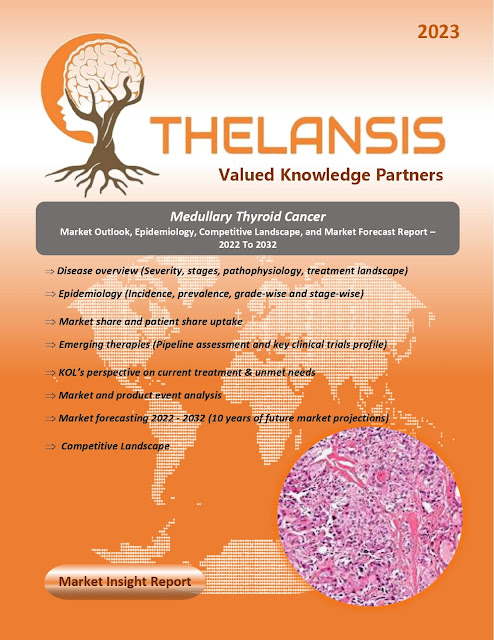Medullary Thyroid Cancer (MTC) – Market Outlook, Epidemiology, Competitive Landscape, and Market Forecast Report – 2023 To 2033

Medullary Thyroid Cancer (MTC) originates from the parafollicular cells, also known as C cells, of the thyroid gland, which produces calcitonin. This tumor is derived from neural crest cells and is characterized by elevated calcitonin levels. About 75-80% of medullary thyroid cancers are sporadic, while the remaining cases are familial and occur in multiple endocrine neoplasias (MEN) 2A, MEN 2B, and familial medullary thyroid cancer (FMTC). The development of MTC can be attributed to RET mutations in the neural crest tissue of the thyroid gland. Germline mutations are associated with MEN2 and FMTC medullary thyroid cancers, while 40-50% of sporadic medullary thyroid cancers have acquired RET mutations. Medullary thyroid cancer associated with multiple MEN syndromes is often multicentric and bilateral, whereas sporadic medullary thyroid cancer is usually unilateral. These tumors typically involve the upper portions of both lobes of the thyroid gland since C cells are predominantly ...
